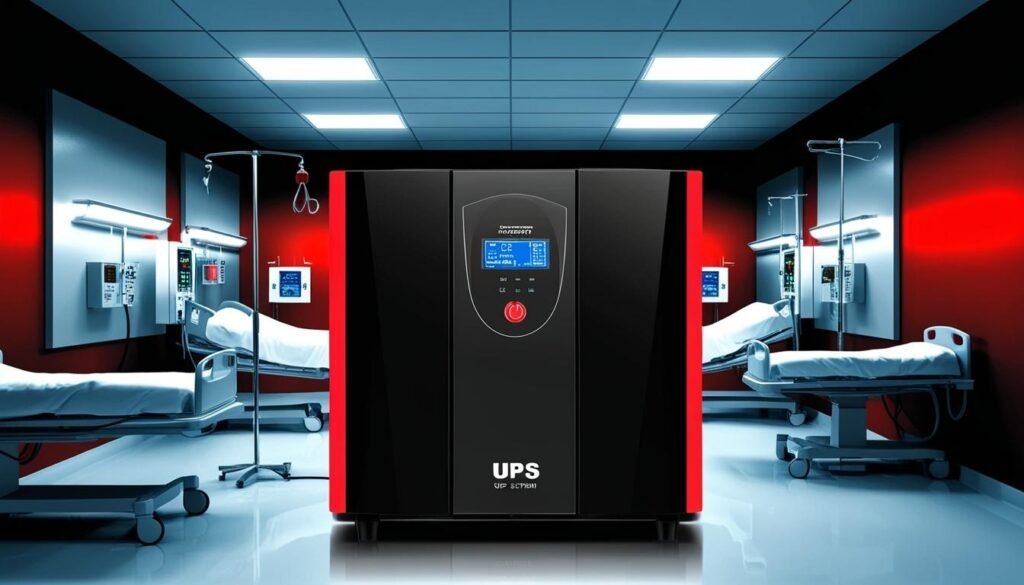As power outages become more frequent, industries like healthcare, finance, and manufacturing depend on robust backup systems to ensure continuity and safety.
The growing complexity and interconnectedness of modern infrastructure has heightened the necessity for reliable power backup solutions across various industries. As reported by Insights Success, critical systems including hospitals, banks, data centres, and manufacturing facilities rely on uninterrupted power supplies to maintain their operations. Disruptions can lead to significant financial losses, operational downtime, or even jeopardise lives, underscoring the urgent need for effective backup strategies in the face of increasing power cuts driven by physical infrastructure deficiencies and extreme climate events.
Critical systems, defined as those whose disruption could yield disastrous consequences, depend heavily on continuous power. For instance, hospitals rely on a constant power supply to keep life-support machinery operational. Similarly, data centres necessitate uninterrupted electricity to prevent data loss or corruption. The article highlights that even brief outages can incur severe consequences, prompting businesses to invest in robust power backup solutions vital for ensuring continuity.
Various types of power backup solutions have emerged to cater to the distinct requirements of different sectors. Uninterruptible Power Supplies (UPS) are one of the most common backup systems available today. These systems provide instantaneous power during temporary failures, safeguarding sensitive equipment from voltage spikes and surges. UPS systems vary in size to accommodate diverse requirements, from personal computers to extensive industrial applications.
Generators also play a crucial role in long-term power backup planning. Unlike UPS systems, which are designed for short-term outages, generators can provide energy for extended periods. This capability is particularly essential for establishments such as hospitals and manufacturing plants, where lengthy outages could have catastrophic ramifications. Today’s generators can operate on diesel, natural gas, or propane, and are often equipped with automatic transfer switches for seamless power transitions when outages occur.
Battery storage systems are increasingly being adopted as a reliable and environmentally friendly alternative to traditional backup techniques. By storing energy during periods of low demand or harnessing renewable sources like solar energy, these systems provide a clean energy source during outages. Continuous improvements in lithium-ion battery technology contribute to their efficiency and economic viability, making them attractive to organisations focused on reducing carbon footprints.
The integration of renewable energy sources within power backup solutions is becoming more common as companies prioritise sustainability. Solar power systems, paired with battery storage, can not only leverage daytime energy generation but also serve as a reliable backup during outages, particularly in areas prone to power cuts. Hybrid systems that integrate traditional generators with renewable energy configurations offer a balanced approach, ensuring operational continuity while minimising environmental impact.
Recent advancements in technology have further refined power backup solutions. Smart monitoring features allow businesses to oversee system performance in real time, predict potential failures, and optimise energy usage. The incorporation of Internet of Things (IoT) technology facilitates automatic detection of outages, immediate activation of backup systems, and timely alerts for personnel. These improvements significantly mitigate downtime and enhance recovery efforts in the event of an interruption.
Several industries are especially reliant on dependable power backup solutions. Healthcare facilities require constant energy to operate essential equipment and maintain crucial infrastructure. Any lapse in power can lead to fatalities, making robust backup systems fundamental to their operations. Financial institutions, which handle vast amounts of data and transactions, face similar risks; power outages can disrupt operations, leading to data loss and diminished customer trust. Data centres, home to critical information for businesses and governments, also depend on reliable backup systems to prevent data breaches during outages. Furthermore, manufacturing sectors cannot afford production pauses caused by power interruptions, making the need for redundancy in their electricity supply even more pressing.
The economic and environmental implications of reliable power backup infrastructures extend beyond operational integrity. Initially, the investment in these systems might be significant; however, they can generate substantial cost savings by minimising downtime and safeguarding equipment. Moreover, the shift towards renewable energy embedded in backup solutions supports sustainability goals, allowing organisations to decrease reliance on fossil fuels while ensuring energy security.
In summary, the urgency for robust power backup solutions in sensitive industries has never been more pronounced. The combination of UPS systems, generators, and renewable energy technologies equips businesses to navigate unexpected power outages effectively. As the world becomes increasingly interconnected, the demand for reliable backup systems will continue to rise, positioning them as critical components of operational resilience and growth in an evolving economic landscape.
Source: Noah Wire Services
- https://www.uptronix.com/ups-for-critical-industries – Corroborates the critical need for UPS systems in industries like healthcare, manufacturing, and infrastructure to prevent disruptions and ensure continuous operations.
- https://www.uptronix.com/ups-for-critical-industries – Highlights the importance of UPS systems in hospitals to keep life-support machinery operational and in data centers to prevent data loss.
- https://www.dc-group.com/comprehensive-overview-of-critical-power-solutions-for-businesses/ – Explains the role of UPS systems, generators, and automatic transfer switches in providing continuous power during outages.
- https://www.dc-group.com/comprehensive-overview-of-critical-power-solutions-for-businesses/ – Details the different types of UPS systems and the use of generators for long-term power backup, especially in hospitals and manufacturing plants.
- https://www.cowangroup.co/news/powering-progress-the-critical-importance-of-backup-power-in-infrastructure – Emphasizes the critical importance of backup power in infrastructure, including hospitals, water treatment plants, and transportation networks.
- https://www.cowangroup.co/news/powering-progress-the-critical-importance-of-backup-power-in-infrastructure – Discusses the integration of backup power into infrastructure planning to ensure continuity and resilience during emergencies.
- https://www.uptronix.com/ups-for-critical-industries – Highlights the economic and operational implications of power outages in sectors like healthcare, financial institutions, and manufacturing.
- https://www.dc-group.com/comprehensive-overview-of-critical-power-solutions-for-businesses/ – Explains the role of battery energy storage systems (BESS) in providing a reliable and environmentally friendly backup power solution.
- https://www.cowangroup.co/news/powering-progress-the-critical-importance-of-backup-power-in-infrastructure – Supports the integration of renewable energy sources, such as solar power paired with battery storage, as a reliable backup during outages.
- https://www.uptronix.com/ups-for-critical-industries – Discusses the advancements in technology, including smart monitoring and IoT integration, to enhance the performance and reliability of power backup systems.
- https://www.dc-group.com/comprehensive-overview-of-critical-power-solutions-for-businesses/ – Highlights the economic and environmental benefits of investing in reliable power backup solutions, including cost savings and sustainability.
















